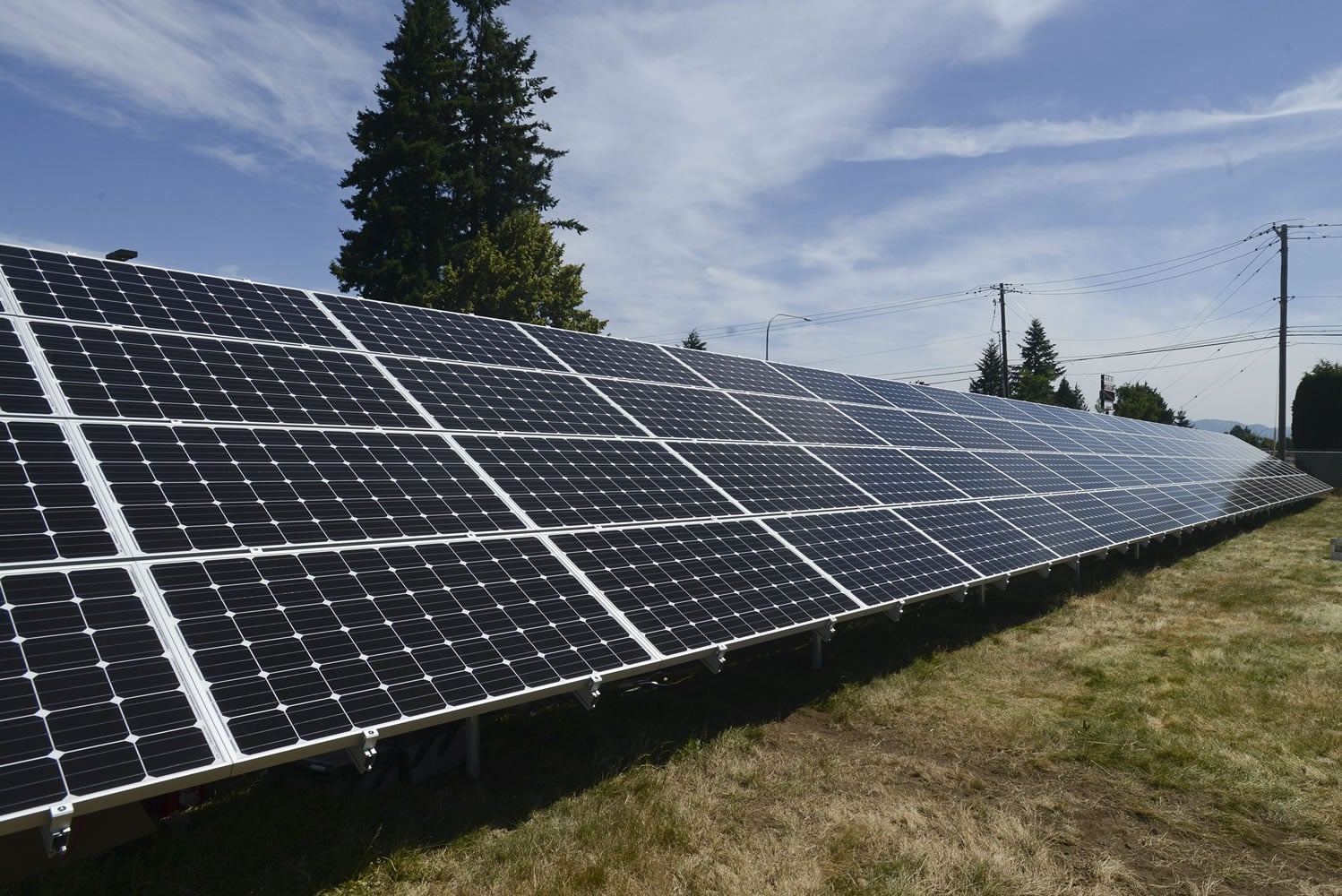Clark Public Utilities commissioners on Tuesday put an official “pause” on new solar incentives as they grapple with an over-allocation of state money.
But the utility, which is hoping for more state funding for the program, hasn’t yet decided whether it needs to cut payments to individual solar users to less than what they had been led to expect.
In January, the utility halted applications after it found it had approved too many rooftop solar installations under the state subsidy program, which could reduce the maximum amount of money going to individual customers.
The utility’s latest calculations show customers with rooftop installations getting 7 percent less money this year and 21 percent less through 2020, when state incentives expire.
If the sun doesn’t shine as much over the next five years — the solar incentives are based on energy production — then the subsidies wouldn’t reach the $5,000 per-year maximum levels anyway and any reduction could be smaller.
Instead of praying for rain in the summer, however, Clark Public Utilities is pushing for legislation that would retroactively increase the amount of subsidy money available to be paid to solar customers. The bill, substitute House Bill 2346, had a committee hearing on Tuesday.
If that legislation fails, the utility is looking at other ways to “meet reasonable expectations of current solar customers,” according to a presentation.
That could mean the utility kicking in money from its own general fund to make up the difference, meaning ratepayers would subsidize solar users. Given the roughly $2 million shortfall — in the context of the utility’s $368 million budget — such a move likely wouldn’t impact rates.
A few homeowners who have reached out to The Columbian say they probably wouldn’t have invested in solar — upfront costs run about $40,000 for a rooftop array — if they knew incentives would be reduced.
Community solar subscribers — those who bought a $100-per-share stake in the utility’s solar arrays — stand to see $3,500 less in incentives over the next five years.
Clark Public Utilities was one of a dozen utilities in the state that allowed too many solar users to sign up for subsidies. Clark had reached about half of its state money limit between 2005 and 2015, while the rest of the money was exhausted since July last year.
Officials have pointed to the end of federal incentive payments — which actually were extended in 2015 — as the reason behind the rush of new solar installations last year.




